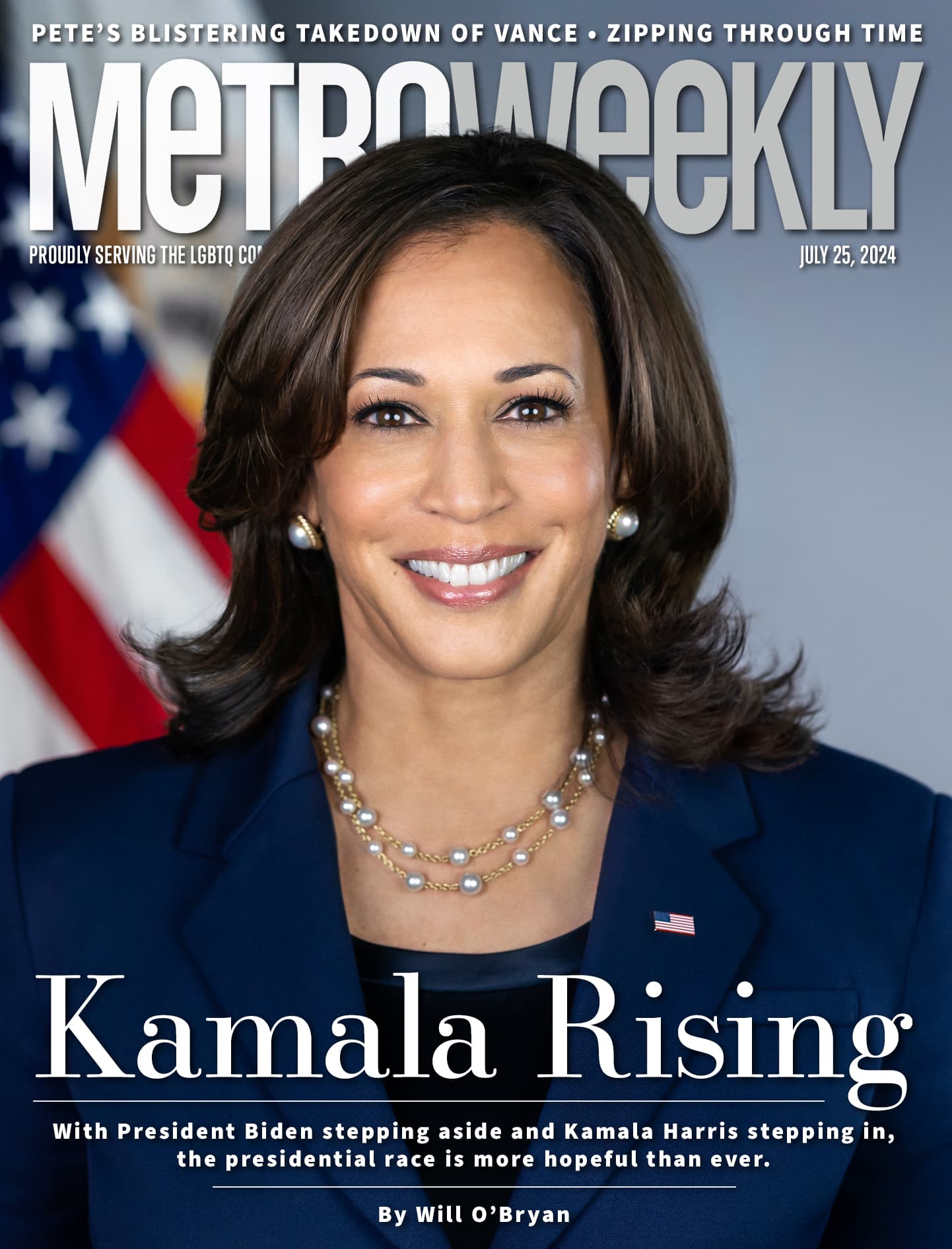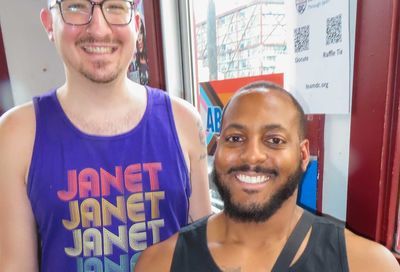Trump administration tells Supreme Court to make discriminating against trans people legal
Justice Department wants SCOTUS to rule that Title VII doesn't protect trans workers from sex discrimination

The Trump administration has told the U.S. Supreme Court that it should be legal to fire a transgender person because they’re not protected by federal law.
In a brief submitted in the case of R.G. & G.R. Harris Funeral Homes v EEOC & Aimee Stephens, the administration says that civil rights laws don’t protect trans people from employment discrimination because the law only protects workers based on “biological sex.”
As such, employers are within their rights to terminate a trans person’s employment based on their gender identity, the administration argues.
The case in question centers on Aimee Stephens, a transgender woman who sued her former employer — Michigan-based R.G. & G.R. Harris Funeral Homes — after they fired her due to her failure to adhere to gender norms or stereotypes of how a woman is supposed to appear, dress, and act.
A lower court had previously ruled in Stephens’ favor, arguing that funeral home owner Thomas Rost’s religious beliefs were not sufficient reason to fire her, and that he had violated Title VII of the Civil Rights Act, which prohibits discrimination based on sex.
Bolstered by anti-LGBTQ organization Alliance Defending Freedom, Rost appealed to the Supreme Court, which agreed earlier this year to hear the case.
Under former President Barack Obama, the Justice Department had agreed that Title VII applied to transgender people and protected them from discrimination. But under Trump, the Justice Department has eschewed that idea — part of a wider pattern of anti-transgender actions and rollbacks of protections during Donald Trump’s presidency.
“In 1964, the ordinary public meaning of ‘sex’ was biological sex. It did not encompass transgender status,” the administration’s Supreme Court brief reads.
“Title VII does not prohibit discrimination against transgender persons based on their transgender status,” it continues. “It simply does not speak to discrimination because of an individual’s gender identity or a disconnect between an individual’s gender identity and the individual’s sex.”
But a lower court has previously rejected that assertion. Ruling in favor of Stephens’ case last March, the 6th U.S. Circuit Court of Appeals argued that Title VII does protect trans people from discrimination — particularly the sex stereotyping that took place at Harris Funeral Homes.
“Discrimination against employees, either because of their failure to conform to sex stereotypes or their transgender and transitioning status, is illegal under Title VII,” Judge Karen Nelson Moore wrote at the time. “The unrefuted facts show that the Funeral Home fired Stephens because she refused to abide by her employer’s stereotypical conception of her sex.”
The Supreme Court is expected to hear oral arguments in Stephens’ case in October.
Should the conservative-majority court rule against her and support the view that Title VII does not protect transgender people from sex discrimination, it would be a landmark loss in the fight for LGBTQ rights, effectively legalizing discrimination against transgender and gender nonbinary workers nationwide.
American Civil Liberties Union attorney Chase Strangio, one of the lawyers representing Stephens, told Huffington Post that the ruling could even go beyond just transgender people and the wider LGBTQ community.
“People don’t realize that the stakes are extending not just the trans and LGB communities, but every person who departs from sex stereotypes: Women who want to wear pants in the workplace, men who want more childbearing responsibilities,” Strangio said.
In a statement, the Human Rights Campaign called the Trump administration’s support of legalizing discrimination “unjustifiable.”
“The Trump-Pence administration’s filing today is both legally and morally unjustifiable,” said HRC Legal Director Sarah Warbelow. “Their argument is un-American, anti-business, and flies in the face of decades of federal case law, including established Supreme Court precedent. There can be no justification for such a narrow interpretation of the term ‘sex.’ Our community will not be silent, and we will not be erased.”
In a tweet, GLAAD said, “This latest attack by the Trump Administration on protections for transgender people is egregious and could have broader implications that impact the lives of LGBTQ people nationwide.”
Read more:
More than 200 businesses file brief with Supreme Court in support of fired LGBTQ workers
Log Cabin Republicans endorse Trump, claiming he’s benefited the LGBTQ community. That’s absurd.
HRC making ‘six-figure’ investment in Virginia elections to boost pro-LGBTQ candidates
Support Metro Weekly’s Journalism
These are challenging times for news organizations. And yet it’s crucial we stay active and provide vital resources and information to both our local readers and the world. So won’t you please take a moment and consider supporting Metro Weekly with a membership? For as little as $5 a month, you can help ensure Metro Weekly magazine and MetroWeekly.com remain free, viable resources as we provide the best, most diverse, culturally-resonant LGBTQ coverage in both the D.C. region and around the world. Memberships come with exclusive perks and discounts, your own personal digital delivery of each week’s magazine (and an archive), access to our Member's Lounge when it launches this fall, and exclusive members-only items like Metro Weekly Membership Mugs and Tote Bags! Check out all our membership levels here and please join us today!

























You must be logged in to post a comment.